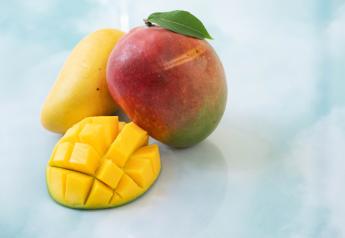Digging deeper into New Jersey's organic produce industry

At first glance, it might look like New Jersey doesn’t have much of an organic produce industry. After all, only 70 of the 9,000 farms in the state are certified organic.
But looks can be deceiving, said Devin Cornia, executive director of the Northeast Organic Farming Association of New Jersey and owner of Stockton, N.J.-based Hungry Work LLC.
The farming association has 870 member organic farms, he said, but most of those farms are small operations that do business directly with consumers and don’t have an inclination to spend the time and money to become certified.
The state does have an estimated 2,786 certified organic acres, according to a survey released in December by Bruce Eklund, state statistician for the USDA National Agricultural Statistics Service’s New Jersey field office.
New Jersey farms produced and sold a total of $22.4 million in all organic commodities in 2021, he said. Sales of all vegetables totaled $8.5 million from 715 acres on 30 farms.
“Organic sales have continued to show that consumers in New Jersey have choices,” Eklund said in a news release.
Organic acreage is on the rise as new generations of farmers take over conventional family-owned businesses and convert to organic farming, said Al Johnson, a Titusville, N.J.-based independent organic inspector.
“They keep taking over more and more acreage from the older generation each year,” he said.
Organic growers conduct a lot of direct-to-consumer business in the central part of the state, which has a higher concentration of wealth, Cornia said. Farmers tend to do more wholesale business in more heavily populated southern New Jersey.

One of the Garden State’s most successful organic growers is Cedarville, N.J.-based Jersey Legacy Farms, the organic division of Sheppard Farms Inc.
The company focuses on wholesale business — which includes retail operations like Whole Foods Market — and distributors that service restaurants, independent supermarkets and specialty stores, said Fran Hancock of Eastern Fresh Growers, which handles sales for the company.
The firm’s organic product line includes romaine, iceberg, green leaf and red leaf lettuces, asparagus, green squash, eggplant, bell peppers and grape tomatoes.
Williamstown, N.J.-based Muth Family Farms converted to organics about 20 years ago when Bob Muth took over the company his father had established. The younger Muth realized that many of the growing practices the company already followed for its conventional crops were the same as those required for organic products, said his wife, Leda.
“We decided to go all-in on it and be certified,” Leda Muth said.
The farm sells “pretty much whatever you can grow in this area” at a couple of farmers markets and a few stores and restaurants from May to November, she said. Strawberries, greens, super sweet corn, tomatoes, peppers and bok choy are some of Muth Family Farms’ most popular offerings.
Many local residents prefer the company’s distinctive varieties of lettuce, super sweet bicolor corn, mini cantaloupes and sugar cube cantaloupes that they can’t buy at most supermarkets, she said.
Despite an increase in organic sales, there’s a lot of competition out there, said Hancock of Eastern Fresh Growers.
“Organic might be trending up, but it might be more of the imports that are grabbing that market,” he said.
Growers in countries like Mexico and the Dominican Republic have lower labor rates than U.S. counterparts, Hancock said. There’s also competition from “organic farms down the road.”
On the positive side, home delivery operations that offer organic produce are on the rise, and quite a few organic consumers choose to support organic production.
“We’re grateful for that,” Hancock said.







